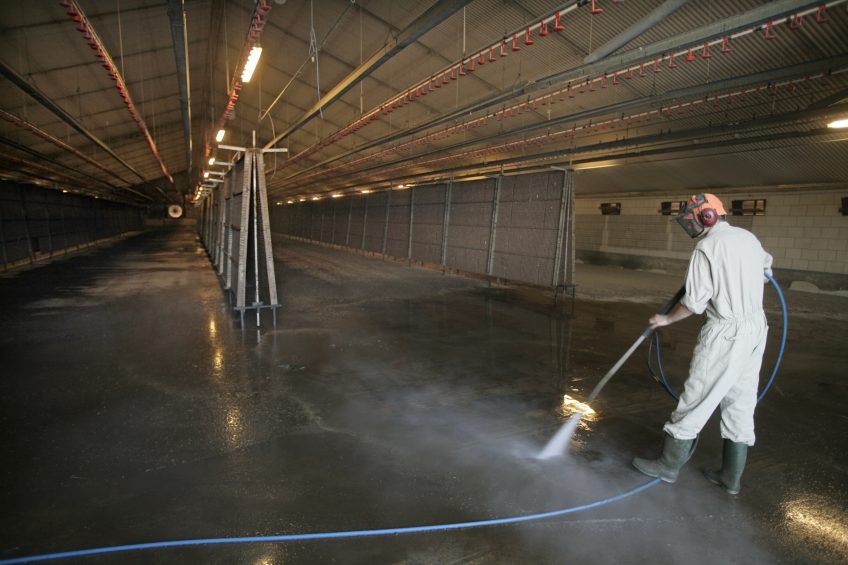Cleaning and disinfection against Campylobacter

Campylobacter bacteria in poultry products are a main cause of human food-borne diseases. Production environments have a direct influence on contamination with pathogens, on increased mortality, and/or indirect influence on uniformity and decreased broiler performance.
Cleaning and disinfection can have positive influences on the increase in birds’ productive performance, as disease causing microorganisms are reduced or destroyed.
These biosecurity programmes are crucial for the maintenance of high productivity of poultry flocks and fundamental to ensure the quality of poultry products, making them appropriate for human consumption. Detailed cleaning and disinfection programmes aim to reduce infection pressure from microorganisms from one flock to the next. Studies simultaneously evaluating efficiency of cleaning and disinfection protocols, poultry performance, sanitary status of the facilities and sanitary quality of the meat are rarely found.
Two cleaning and disinfecting programmes were evaluated regarding their influence on productive performance, elimination of Campylobacter, and characterisation of Campylobacter jejuni strains. Tests were done with two subsequent flocks with 960 birds each. In the first, the whole flock was inoculated with a known strain of Campylobacter jejuni in order to contaminate the environment. In the second flock, performance and microbiological evaluations were carried out, characterising an observational study between two cleaning and disinfection programmes, regular and proposed.
The regular programme consisted of sweeping facilities, washing equipment and environment with water and neutral detergent. The proposed cleaning programme consisted of dry and wet cleaning, application of two detergents (one acid and one basic) and two disinfectants (250 g/L glutaraldehyde and 185 g/L formaldehyde at 0.5% and 210 g/L para-chloro-metacresol at 4%).
Total microbial counts and Campylobacter spp in environment and carcass samples were estimated. The proposed programme resulted in a reduction of Campylobacter spp. on floors, drinkers and birds. Moreover, it was possible to identify six different Campylobacter jejuni strains in the facilities. The proposed treatment resulted in a positive influence on the birds’ performance and reduction of environment contamination for broiler chickens.












